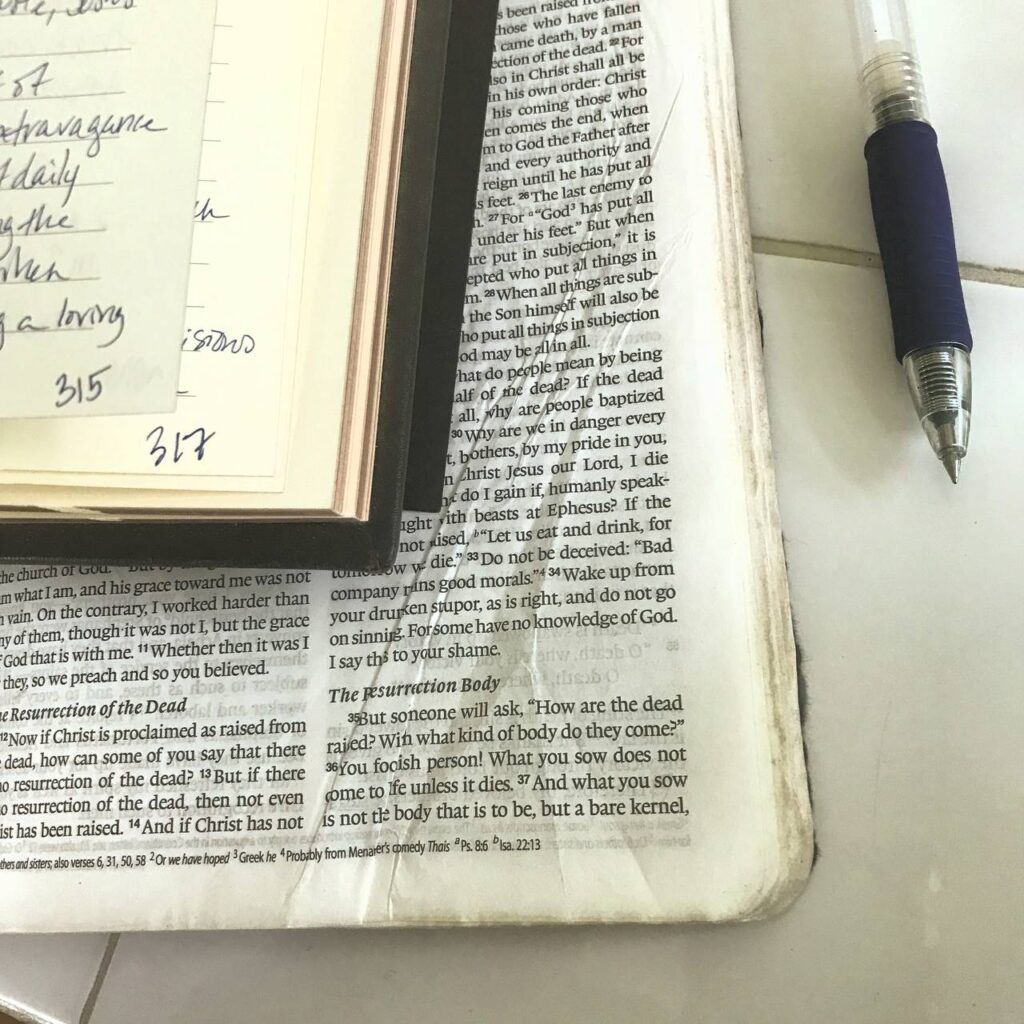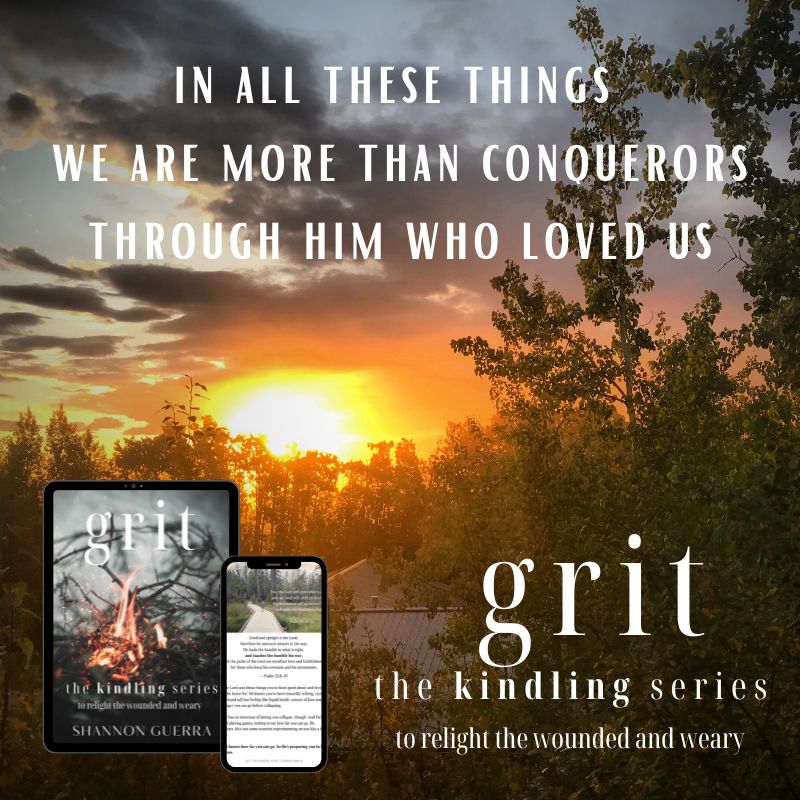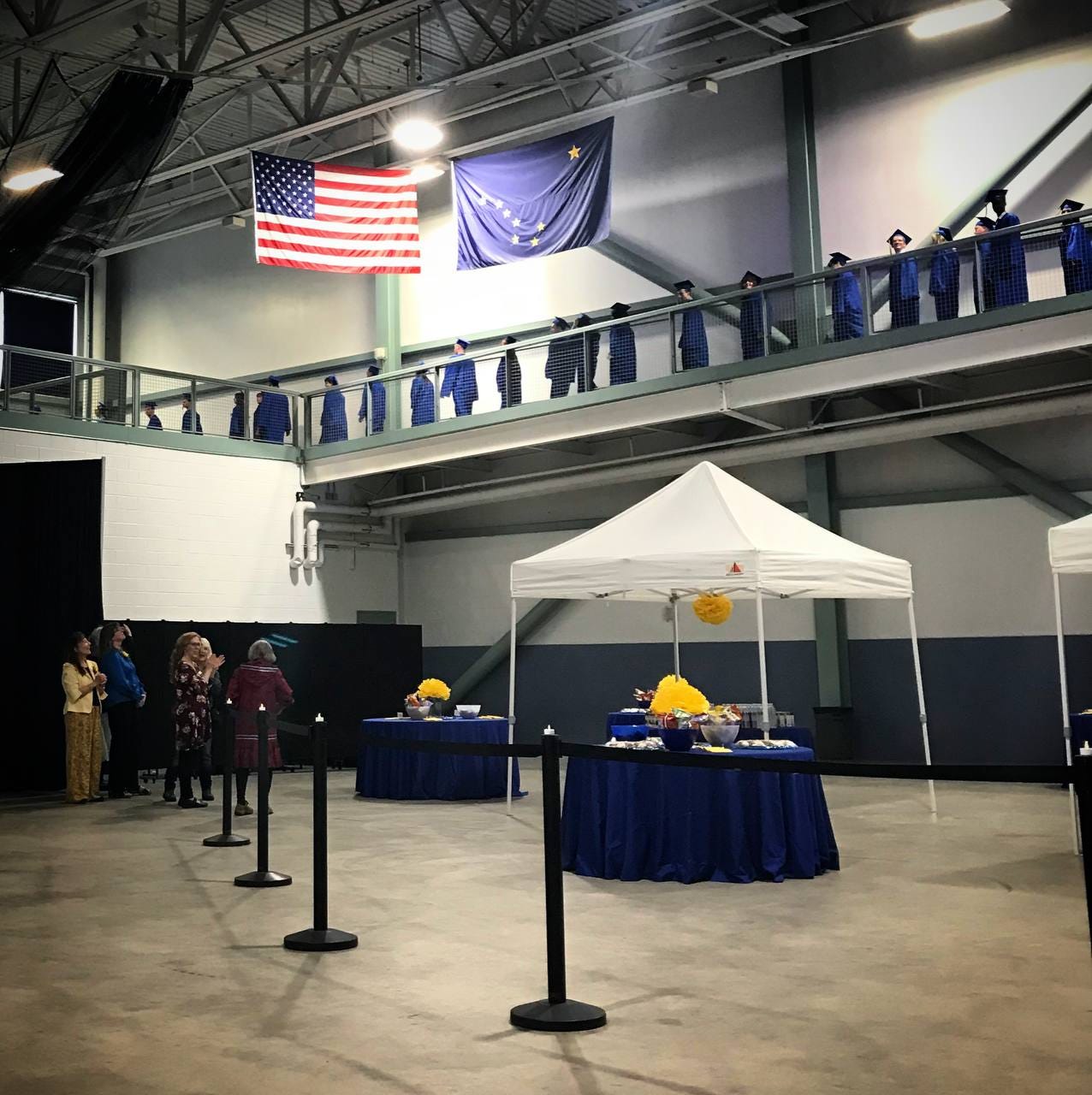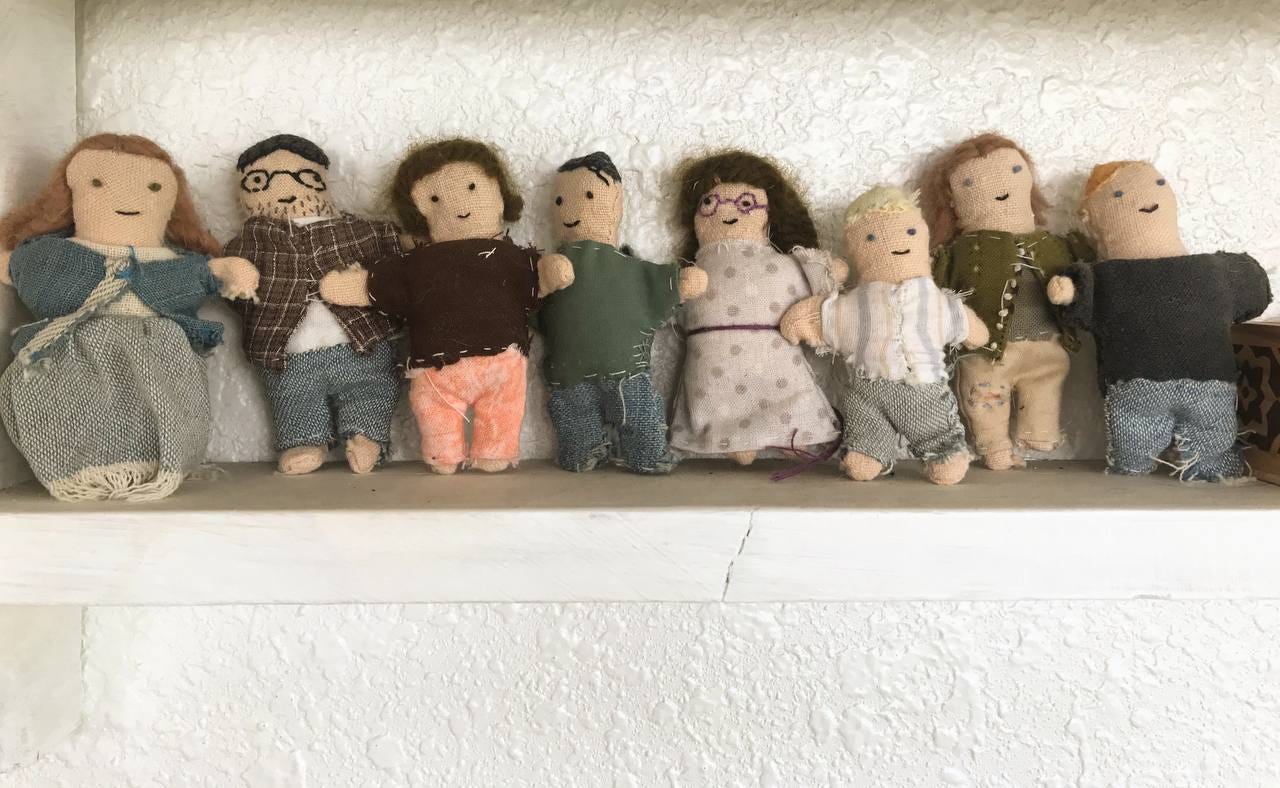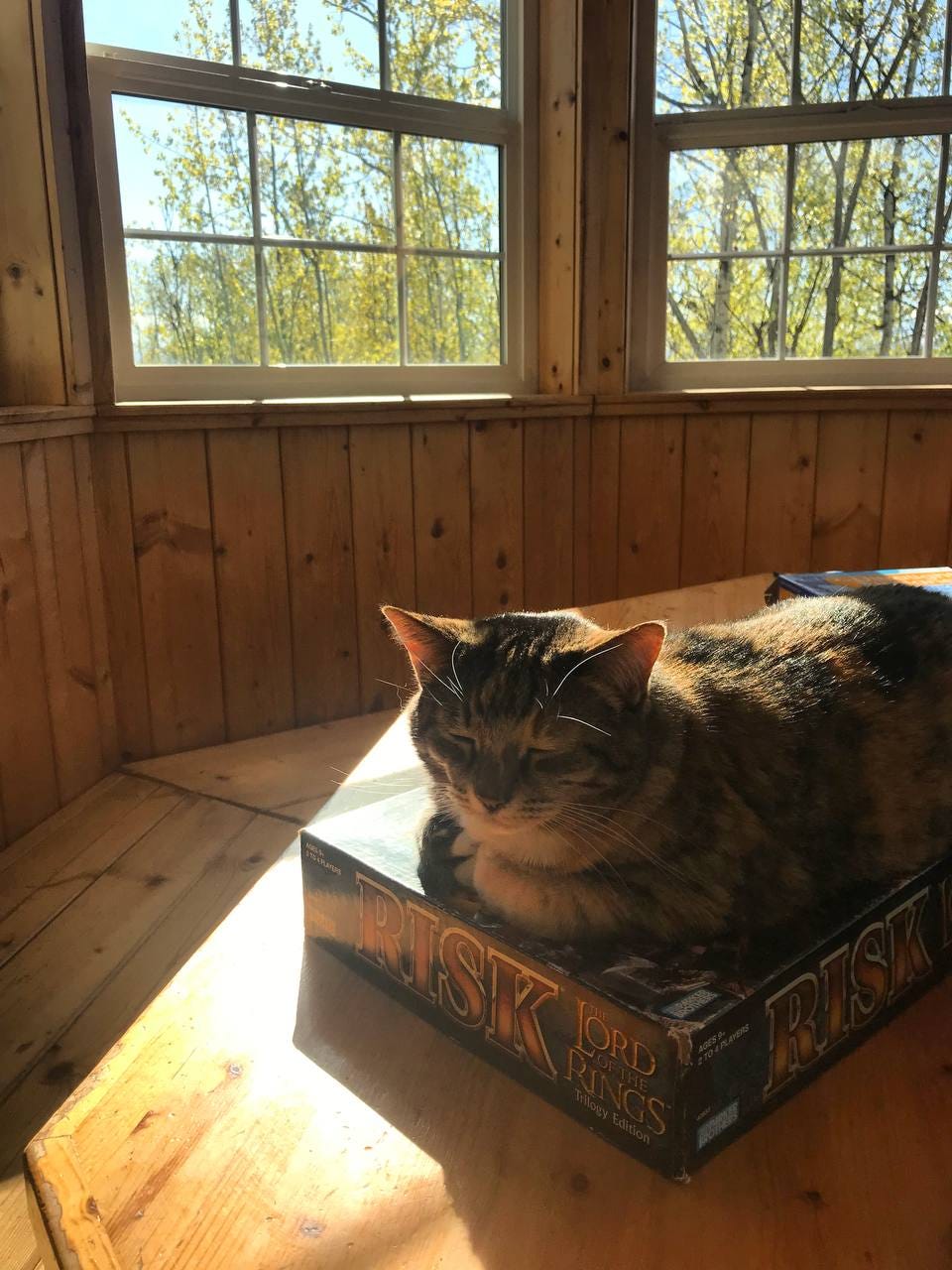I think we’ve started the no-dig method of gardening, but it was an accident.
Partly out of laziness, partly just not knowing anywhere better to toss the old coop bedding, we started throwing it on top of the garden beds as compost in the fall. Then we just planted in that same compost-turned-mostly-dirt in the spring. Not only did the gardens do better, but weeding was a piece of cake – there were hardly any weeds at all because the weed seeds were buried underneath and left dormant, rather than stirred up and activated. Those that did come up were pulled out with no effort because the soil was so loose and healthy.

Unfortunately, the chickens and local rabbit have not observed our new no-dig policy and we’ve lost most of our zucchini as a result of their enthusiasm.
But other than their help, it’s been a perfect summer so far for gardening: Mostly sunny days, a little rain. We’re out there doing school on the lawn, playing with the chickens, reading in the deck chairs, wading in the kiddie pool. And lo and behold, I am tanner than I have ever been…which means I’m slightly darker than bleached white printer paper. (It’s the little things.) But still, I’m not just freckled or sunburned, and after a lifetime of skin issues I can feel things shifting in healthy ways I’ve never experienced before. I know I’m late to the game, but I finally understand the joy of feeling the sunlight sink into your bones – the warmth that fills the gaps deep within us as we realize, Yes, this is exactly what I’ve needed.

I never used to really care about getting out in the sun. Sensitive skin gets even more aggravated by bug bites and plant scratches; I didn’t want to get burned; staying inside was easier. Sunny days were cheerful, but nothing to really revel in.
Now though, we’re out there everyday and I notice things I never did – Oh look, that’s shepherd’s purse, and there’s wild mustard. There’s Peter Rabbit hiding in the raspberries. And above, two eagles flying over our house, circling so high they’re mere specks in a photo.

(In the center, right at the edge of the cloud, one above the other…so small you probably thought they were dirt on your screen. ;)
The speaker a few Sundays ago was from Pakistan, and his accent was a little difficult to catch but he talked about eagles and his points were spot on: Eagles fly above the storms, and their strength is in their diet – they eat fresh things, not dead things. Fear and doubt are dead things, so don’t feed on them.
I’ve been feeling my mindset shifting, learning to fly above the storm rather than to beat against the waves and be pummeled by the wind. Yes, xyz could happen, and yes, it could be devastating. The stakes are higher and scarier. But also yes, God is providing and healing and restoring. It’s like the open window of heaven is hovering right above me, waiting for my beliefs and attitudes to line up so breakthrough can pour down.
Search me, O God, and know my heart;
Try me, and know my anxieties;
And see if there is any wicked way in me,
And lead me in the way everlasting.– Psalm 139:23-24, NKJV
It’s the Lord’s work, not mine; He is the one doing the searching and digging. But it’s also my perspective, my focus, my decision to not indulge in complaining or bitterness or self pity, my choice to look at Jesus and not the wind and waves around me.
It is the no-dig method of gardening in my heart, letting some things simmer and fade. Some issues do need pulled up and examined, but the healthier the soil is, the easier they come out, and minor offenses can be buried under other nutrients like love and forgiveness and surrender, smothered into nonexistence rather than stirring up old wounds that expand, proliferate, and scatter.
He knows that wounds and irritations are louder than quiet, everyday joys, and if we focus on them they magnify way out of proportion. He knows our default is to focus on the pain and frustration. We have a million great interactions with people, but if we have one or two painful ones that are filled with rejection or abuse, those hard experiences threaten all the other good ones in our future if we let them.
So He tells us to think on certain things – the beautiful, the pure, the lovely – and bury the irritations not out of irrational denial but in a gritty, deliberate focus to play it cool and stay postured for breakthrough. Focusing on the good things is a strategic covering; refusing to dig up and entertain the weeds keeps them down to size.

The digging is where I start looking too close, too deep, examining every little germ that might be my fault, might be why I deserved this, might explain why I need to go through this really hard thing because it’s for my own good since obviously I’m still just not humble, smart, wise, or holy enough yet. Striving and fear take over. The tightness in the throat, trying to get a deep breath, the feeling of not enough oxygen…but it’s not asthma, it’s anxiety.
Whatever you feed grows, the pastor said. Don’t feed the fear and doubts. Feed hope and life, feed on the Word of God. It is alive.
It’s His work, but I have to position myself to receive the benefits of it. And caving to fear or anything else that weakens faith will blow me out of the sweet spot every time.
It is a small view of God that makes us feel like we have to strive and dig and do all the things just to be in the right place at the right time, to navigate the confusion of the unknown, lest we miss the boat. The Lord will put us where we need to be, tell us the things we need to know, as long as we are yielded and willing.
So we do yield and surrender, and He peers in like the light that soaks into our bones, and we realize, Yes, this is exactly what I’ve needed. We’ve gotten used to living in the cold and the dark, and didn’t realize what we were missing out on. Or maybe we sort of did, but we sucked it up and dealt with it because we were used to the pain that’s always there – the grief, the disease, the abuse, the resignation, the attitude. This is our weather, our lot, our destiny, whatever.
We can take it, we tell ourselves. We can be tough, we can be longsuffering. It’s just one more thing; I can do this. We forget that we were made for more than the dark and cold.
But two things can be true at the same time. Yes, we can (and should be) longsuffering, but also, hope deferred makes the heart sick. Yes, we should carry our cross, but also, His yoke is easy and His burden is light.
So we choose the light, the warmth, the brightness and glory of His eye on us, as we are aligned and in position to receive the breakthrough He’s wanting to send.
I think all Christians would agree with me if I said that though Christianity seems at first to be all about morality, all about duties and rules and guilt and virtue, yet it leads you on, out of all that, into something beyond. One has a glimpse of a country where they do not talk of those things, except perhaps as a joke. Every one there is filled full with what we should call goodness as a mirror is filled with light. But they do not call it goodness. They do not call it anything. They are not thinking of it. They are too busy looking at the source from which it comes.
– C.S. Lewis, Mere Christianity
The Lord is bringing light and healing, revelation and joy to areas we’ve given up on and settled for. Ignoring pain isn’t our lot; living in the dark and cold isn’t our lot. It might be a season, but it’s not our destiny.

The belief that things could be different comes out like a little bit of sun, and we see it through the window and wonder what it would feel like on our skin. And sometimes we think, Nope, not worth it, it’s too bright and my sunglasses are all the way downstairs. I don’t want to deal with the bugs. I might get burned.
I never realized how cold I was until I stepped into the sun.
But the color is so glorious out there. It lures us. His kindness leads us to repentance and we are drawn and wooed by the warmth of the way things ought to be.


